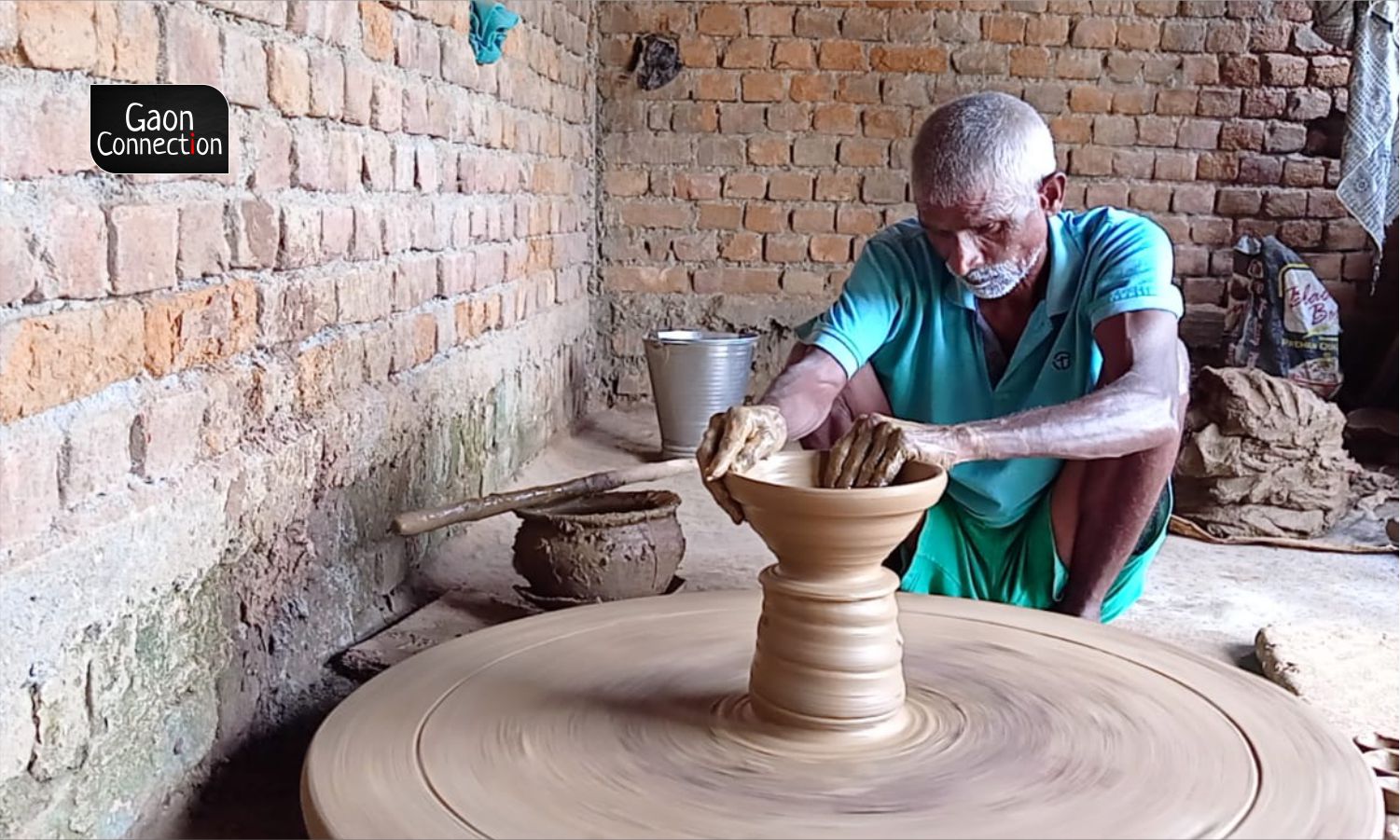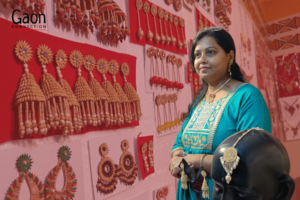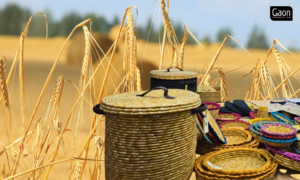Sonbhadra, Uttar Pradesh
In the village of Maldeva in Sonbhadra district, the potter community is busy. In anticipation of the festive season of Diwali, potters began making diyas (earthen lamps) for a couple of months now.
“I have been making mud and clay pots for forty years now,” Harihar Prajapati, a 60-year-old potter, told Gaon Connection.
“We make the puja vessels and lamps in time for Deepavali and Chhath puja. And, in other seasons, we make whatever is in demand,” he added.
Prajapati said that the potters were just about managing to make ends meet and made very little profit. The COVID19 pandemic has further affected their traditional occupation. However, as coronavirus cases register a drop across the country, the potters are hoping for a higher sale this Diwali.
Also Read: Diwali Special: Unique diyas that stay alight up to twenty four hours
“People are buying diyas again,” Prajapati said with hope-filled eyes. “The cost of living has gone up so much. We have to buy the wood, bring suitable mud from a distance and work for fifteen days or so continuously. For the amount of hard work we put in, we barely cover the labour costs,” he pointed out.
Pottery work is extremely labour intensive. The craftspeople have to source different kinds of mud before combining them into the work medium. They turn the prepared clay on their wheels and then carefully slow-bake them in bit pits that are fired with wood and straw. Sometimes the clay pots are baked for two days.
The income for the amount of hard work put in is not commensurate, said the potters in Maldeva village. “Diyas have been selling at the same rate of forty to fifty rupees for a hundred pieces for several years now. But expenses have doubled, and there are times we struggle to even recover the expenses we incurred making the diyas, vessels, etc.,” 50-year-old Nandlal Prajapati, told Gaon Connection. “We manage to make just enough to feed ourselves and our family members,” the potter added.
Also Read: The famous pottery artisans of Pokhran are forced to sell fruits and vegetables these days
The potter community has faced several challenges. Competition from cheaper synthetic alternatives took a big chunk of business away from them. Sometimes procuring the right kind of mud for their craft was problematic, and, of course, not many were interested in what they had to offer in the market.
Some years ago the traditional clay diyas had almost disappeared, swallowed up by Chinese-made shiny lights and candles. Things are better now, said some of the potters in Maldeva.
The government is also making efforts to support potters. On October 28, at a two-day seminar on climate change, held in Lucknow, Chief Minister Yogi Adityanath made a special mention of products made of clay and cow dung. He said the government had set up the Mati Kala Board to help the artisans, and had also invited them to a meeting to share their problems and difficulties they were facing.
Also Read: The shrinking world of Ghurni clay dolls
In July 2018, the Mati Kala Board was set up in the state to support and encourage the potters and help them earn a better livelihood. Potters were given permission to take the mud from ponds without having to pay for it.
The state government’s schemes such as the One District One Product programme that encourages indigenous and specialised products and crafts in Uttar Pradesh, the Vishwakarma Shram Samman Yojana that promises aid to the workers of the state, and the Mati Kala Board is working towards uplifting the lives and livelihoods of arts and artisans.
Also Read: IIT Madras enables Tamil Nadu potters to produce microwaveable utensils
Meanwhile, Chief Minister Yogi Adityanath also said that the potters would receive technical support to take forward their craft. The potters would be given potters’ wheels that would run on solar power and electricity, he added.
Raju Prajapati of Maldeva village acknowledged that the sale of diyas was looking up. Raju’s family has been making diyas for generations, he said. “It is what our ancestors did, and my entire family is engaged in it,” he told Gaon Connection.
“The diyas are selling fast, but we are not earning as much as we should,” he said.
Read the story in Hindi.


















